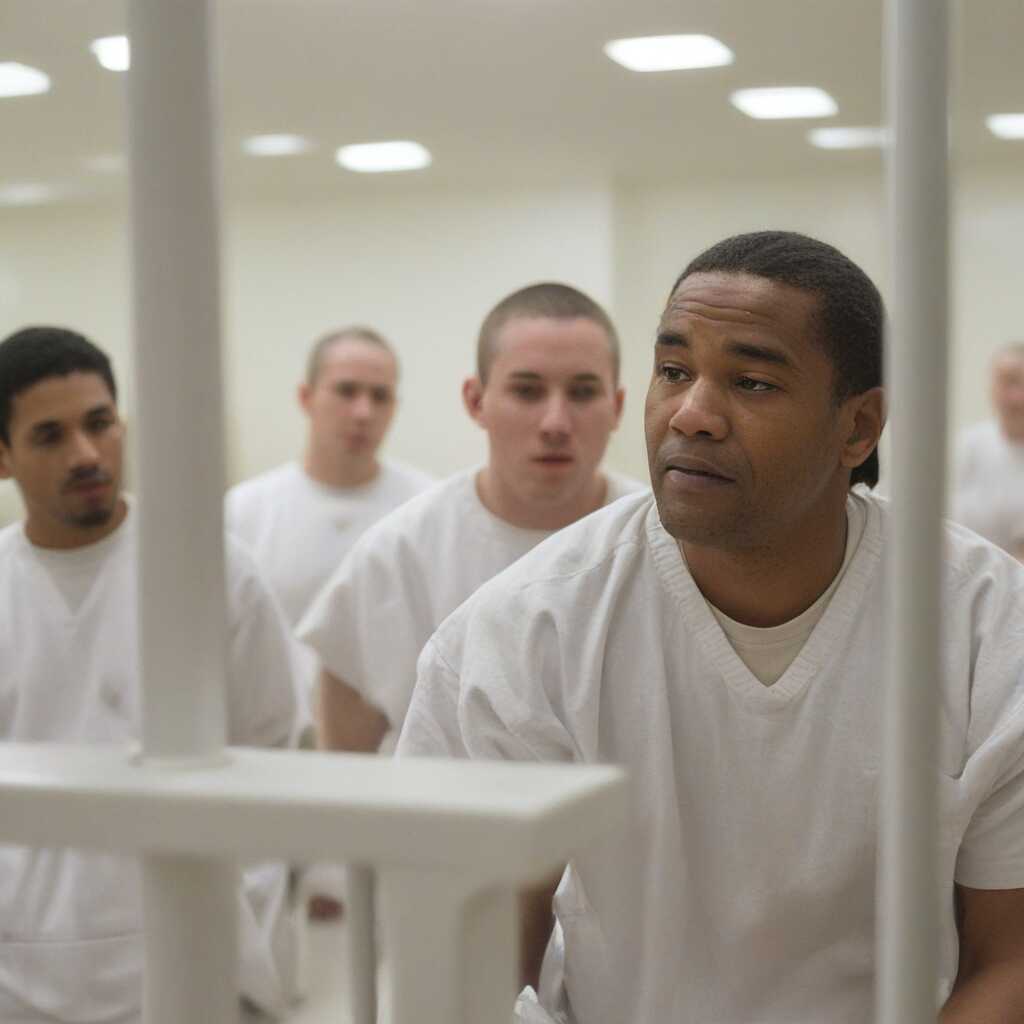
New Orleans Jail Implements Mental Health-Focused Program to Combat Violence and Harassment
The Orleans Justice Center is reforming its approach, emphasizing mental health support and community, aiming to address trauma and reduce violence among inmates.

In June, an anxious and overwhelmed 18-year-old arrived at the Orleans Justice Center, a notorious jail, to await trial. He was placed in a unit with more than four dozen other men, where he immediately faced physical and verbal intimidation for being gay. Despite the prevalent harassment and violence at the jail, the outcome this time was different. The unit's leader, Lieutenant Michael Lewis, quickly expelled the harasser, bringing relief to the victim.
The victim, along with nine other pre-trial detainees, credited the action taken by Lewis, highlighting its significance for creating a safe environment. This experience reflects the goals of a new mental-health-focused community within the jail, aimed at reversing years of violence and neglect, and fostering a sense of camaraderie. The approach, referred to as the "model pod for mental health," is a reflection of a larger effort to reshape the Orleans Justice Center.
A New Approach to Inmate Treatment
The program, spearheaded by Sheriff Susan Hutson, aims to treat pre-trial inmates more like patients deserving of community and healthcare. In this experimental pod, inmates have the freedom to set their own schedules, engage in activities like playing basketball, cutting each other's hair, watching movies and nightly news, and sharing books. They are expected to adhere to a zero-tolerance policy for harassment and violence, manage daily chores, and participate in frequent group discussions on conflict resolution, stress, and trauma. Individualized mental health treatment is also provided to some members.
Hutson, the only female sheriff in Louisiana, emphasized the facility's role as the largest mental health care provider for New Orleans. She shed light on the longstanding mental health crisis in the city, exacerbated by the closure of Charity Hospital's mental health ward after Hurricane Katrina. The closure of large mental institutions and psychiatric facilities across the United States has led to jails in cities like New Orleans, Los Angeles, Chicago, and New York becoming major providers of mental health care.
According to Hutson, more than half of the 1,400 people in the Orleans Justice Center's mental facility are receiving medication for diagnosed disorders such as schizophrenia, depression, and post-traumatic stress disorder. Witnesses in the model pod reported experiencing gun violence and the permanent separation of families due to Hurricane Katrina, highlighting the profound trauma many inmates have endured. Hutson lamented the fact that jails serve as the de facto mental health system in areas without proper mental health infrastructure, emphasizing the untapped potential for treatment and prevention programs.
The Impact of Legislative Changes
Despite her advocacy for mental health reform, Hutson faces challenges from lawmakers pushing for crime and punishment laws, including treating 17-year-olds accused of crimes as adults. These changes have led to an increase in the facility's population, forcing Hutson to create a new unit for minors, which poses logistical and financial challenges in an already overcrowded facility.
Louisiana has been criticized for its high rate of incarceration, which surpasses that of any other state and independent democratic country. Legal scholar Andrea Armstrong stressed the need for a different approach to safety and a substantial investment in building new mental health hospitals. She argued that mental health and incarceration crises should not be connected to the criminal justice system, and treatment and recovery should not be linked to punishment.
Transformation Through the Program
Despite the challenges, the model pod has had a transformative impact on its residents. One member, Leonard Patty, who has been in pre-trial detention for five years, described the program as lifesaving. He shared how the program helped him address past trauma and shift his perspective from one of anger and hopelessness to a focus on uplifting others, particularly younger residents like Marvell Smith. The program's impact on Patty and others emphasizes the potential for rehabilitation and personal growth within the jail system.
Lieutenant Michael Lewis has been actively gathering data on the residents' upbringings and mental health treatment needs, with the aim of presenting his findings to the city to expand the program to other parts of the jail. He stressed the difference that treating individuals with humanity can make, emphasizing the potential for significant positive change within the jail system. The development of the mental-health-focused community at the Orleans Justice Center represents a shift towards addressing the trauma and challenges faced by pre-trial detainees, with the goal of fostering an environment conducive to rehabilitation and personal growth.
Share news















